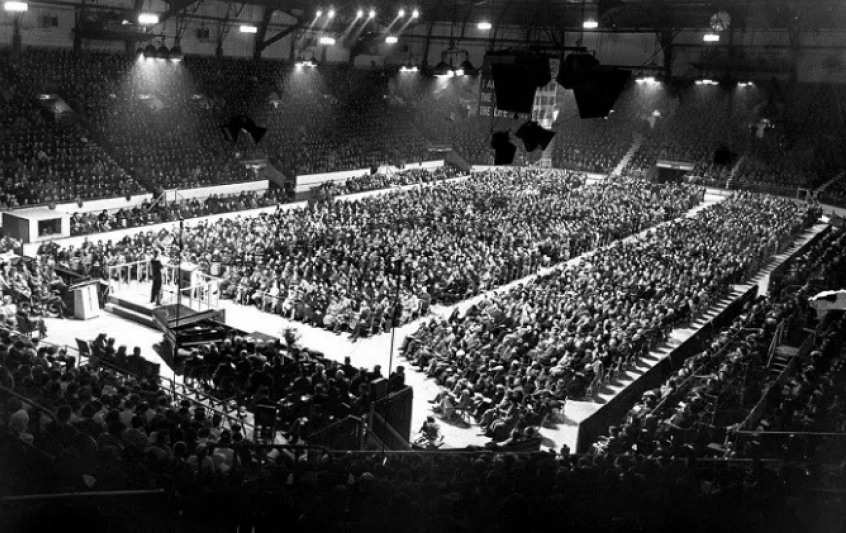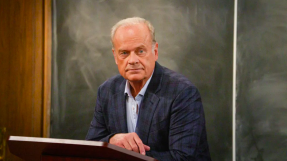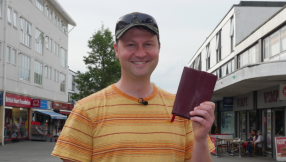More than 60 years ago a fiery young American evangelist hit the British religious scene like a bombshell.
Billy Graham's crusades weren't warmly received by the establishment or the secular media, at least at first – Michael Ramsey, then Bishop of Durham, condemned the 'menace of fundamentalism' and accused him of being both sectarian and heretical, while newspaper columnists sneered at the 'Yankee spellbinder'.

For the wider church, though, he was a revelation. He filled the 11,400-seat Harringay Arena for 12 weeks. Closing events at Wembley Stadium and White City attracted 120,000 and 65,000 respectively. The organisation required was extraordinary, and rested on the meticulous preparation that was a hallmark of his campaigns.
Among the many details that needed to be addressed – from music to transport, first aid and stewarding – was what would happen to those who responded to his invitation to get up out of their seats and commit their lives to Christ. An army of counsellors was trained to come alongside them, having memorised appropriate Bible verses in advance.
In the Spectator of March 12, 1954, no less a figure than John Betjeman wrote of his impressions of the event. An Anglo-Catholic, he was surprisingly positive. 'Billy Graham knows his Bible so well and he brings the scenes of Our Lord's life on earth, so vividly before us, that neither Catholic nor Evangelical could quarrel with him,' he says. 'He is genuinely above religious differences and if any intolerance or quarrelling comes into the campaign, it will not be Billy Graham's work but the devil.'
Of the counsellors he wrote that it was a pity there would be so few Catholics among them – Anglican or Roman – but that 'provided the counsellors have the clarity and breadth of Billy Graham I do not think we need imagine that their care of converts committed to them will be misdirected.'
One of those counsellors spoke to Christian Today about her memories of the event.
Mary Southam is 90 years old, and became involved through a college friend.
'It was a very thrilling time,' she says. 'I'd never come across anything like it before. Not only was he a wonderful speaker and communicator, but he was so sincere, so humble.'
She and her friend Margaret went twice a week ('all we could manage as we were working full-time'). She recalls them being urged to suck a peppermint during the last hymn in preparation for their counselling duties as they 'had to get quite close to people' – just one example of the organisation and attention to detail that so impressed her.
Mary was young, only 21. 'I didn't feel very capable,' she says. 'There was one person I was a complete failure with; we were not on the right wavelength at all. But you just do the best you can.'
She's never forgotten the experience. 'It must have had a fairly profound effect on me. Here I was, a young teacher with no experience – it humbles you. But if God wants you to do this, he'll help you to do it.
'It seems long ago now, but I never got tired of going. Every night it was full.'
And, she concludes: 'In some ways it's as clear now as it was then – I still remember going into that great arena.
She was one of the counsellors who had, as Betjeman put it, the 'clarity and depth' exemplified by Billy Graham himself – though she would probably laugh at the comparison.
'It was a great privilege,' she says. 'I wouldn't have missed it for the world.'













